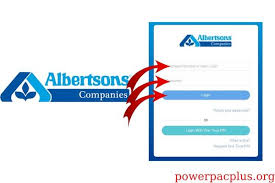Insurance
Insurance definition
Simply described, insurance is a contract, represented by an insurance plan, in which the policyholder gets financial protection or compensation against losses from an insurance provider. The business pools its clients' risk to provide more affordable insurance premiums. An insurance policy is used to hedge against the chance of financial loss, both minor and great, which might arise from harm to the insured or their house, or from responsibility for injury or damage given to a third party.

Health insurance
When you or an associate of your loved ones becomes ill or injured, having health insurance can help cover the high cost of medical care. You select a plan and commit to a regular premium payment. Then, the insurance provider will agree to foot a few of the bill for your covered medical expenses. Health insurance companies pay these amounts predicated on negotiated discounts with medical providers typically.
Car insurance
Auto insurance provides financial protection in the event of an automobile accident or other covered loss (such as fire, theft, vandalism, or natural disaster). Not absolutely all auto insurance policies will pay out for anyone who is found to be responsible in an accident; others will. As an added bonus, there are insurance policies that can assist with costly medical expenses, lost property, or vehicle repairs. In 2020, the normal bodily injury claim for a car is $20,235, while the typical property damage claim is $4,711. One crucial fact to remember about any insurance policy is that the coverage limit you select is the maximum amount the policy will pay out. You are responsible for anything beyond that. That is why it's essential to strike a balance between low premiums and comprehensive coverage.
Insurance
General insurance
The financial impact of risks both large and small, such as fires, floods, hurricanes, and earthquakes, theft, automobile accidents, risky travel, and the expenses of legal action against us even, could be mitigated with general insurance, which protects us and the items we value, such as for example our homes, cars, and valuables. The correct insurance could possibly be found with the characteristics we want, and we can pick the risks we wish to insure against. Insurance is effective because it distributes the financial burden of working with unforeseen events over a wide group of individuals positioned in the same location. A premium is the money you pay on a regular basis (monthly or annually) to keep your insurance policy in effect. The premiums paid by you and thousands of other policyholders shall be combined right into a single fund. Hopefully, you won't have to use that pool ever. But if you're among the unfortunate victims of a disaster, whether it's extreme weather or an accident, those funds works extremely well to help you achieve your limit. policy decision that it has made. In the event of a major accident, your insurance company may pay to have damaged goods fixed or replaced. Cash payouts in the amount specified by your insurance may also be a possibility.
Auto Insurance
To drive without vehicle insurance is illegitimate in the majority of states. It's not only against the law to operate a vehicle without insurance, but it can also be quite costly if you cause a major accident and nobody else has insurance. Luckily, there are several options for auto insurance that can pay for repairs to your vehicle and medical bills if you or a passenger are injured in an accident. If a major accident is caused by you and so are found at fault, liability coverage will help pay for the other party's medical bills and any property damage. When you are sued for an accident you caused while driving, your vehicle insurance will pay for your legal defense as well as any judgements or settlements you might have to pay. Insurance for uninsured/underinsured (UM) motorists is mandatory in all states (excluding New Hampshire and Virginia). The insurance will pay for your medical care and those of your passengers if an uninsured or underinsured motorist causes an accident involving your vehicle. Accident victims who have no auto insurance coverage may still get compensation for medical bills and lost earnings via their own insurers. However, UM insurance is mandated in a number of of the states. Damage to your automobile by an uninsured or underinsured motorist is included in UM coverage in certain jurisdictions, and PIP is necessary in all but a few of them (PIP). In the event of a collision, PIP insurance shall pay for medical expenses for you as well as your passengers regardless of fault. In addition to covering medical expenses, missed pay, and rehabilitation, some policies shall also compensate you for the price of caring for your children while you recover. Medical payment insurance is necessary in certain states however, not others, while personal injury protection is mandatory in others. When you or a passenger are wounded in an accident, regardless of responsibility, MedPay insurance may assist cover medical costs. Typical policy limits for liability, comprehensive, and collision insurance are between $1,000 and $5,000. In the event that your vehicle is damaged, both these policies will help purchase the repairs. Regardless of who was responsible, collision insurance will cover the price tag on repairs or replacement following an accident. You can be sure that your vehicle is protected against theft together with natural disasters, human mischief, and even animal assaults with this all-inclusive policy. Most insurance policies include both collision and comprehensive coverage, nevertheless, you might decline any one if you like. If you get a car finance, however, the lender will insist that you truly purchase the vehicle. Contracts for automobile rentals are the same way.
Life Insurance
When an insured person dies, the insurance company or guarantor will pay out a death benefit to the policyholder's designated beneficiary, in line with the terms of the policy (usually the contract). Payment might also be triggered by the occurrence of other events specified in the contract, like the terminal illness or critical illness. The policyholder is responsible for the premium payment, which may be made or all at once periodically. Other costs, like as a funeral, could be covered as well. Since a life insurance policy is a legally binding contract, its conditions outline the scope of coverage and any exclusions. Typically, the insurer's responsibility is bound by clauses in the contract that explicitly say that certain events (such as suicide, fraud, war, riots, and civil unrest) are not covered. Problems may emerge if the insured deliberately submits to a risk, like in the full case of an experimental treatment or medicine that leads to harm or death, and the event is not plainly characterized. death.

Commercial Insurance
Business insurance, or commercial insurance, safeguards your company financially in the event of unforeseen events like litigation from disgruntled customers, bodily injury or property harm to customers or employees, or theft. destruction of property and other calamities It's important to know the difference between your two primary varieties of business insurance. Should something eventually an organization's physical assets, commercial property insurance may assist cover the expenses. Liability insurance for businesses is there to aid with the financial fallout of legal action taken against them.